Call for Papers
IMPORTANT DATES
All deadlines are 11:59 pm AoE (Anywhere on Earth)
Part of the FMCAD 2022 program
FMCAD Student Forum
CONFERENCE SCOPE AND PUBLICATION
FMCAD 2022 is the twenty-second in a series of conferences on the theory and applications of formal methods in hardware and system verification. FMCAD provides a leading forum to researchers in academia and industry for presenting and discussing groundbreaking methods, technologies, theoretical results, and tools for reasoning formally about computing systems. FMCAD covers formal aspects of computer-aided system design including verification, specification, synthesis, and testing.
FMCAD employs a rigorous peer-review process. Accepted papers are published by TU Wien Academic Press under a Creative Commons license (the authors retain the copyright) and distributed through the IEEE XPlore digital library. There are no publication fees. At least one of the authors is required to register for the conference and present the accepted paper.
TOPICS OF INTEREST
FMCAD welcomes submission of papers reporting original research on advances in all aspects of formal methods and their applications to computer-aided design. Topics of interest include (but are not limited to):
Model checking, theorem proving, equivalence checking, abstraction and reduction, compositional methods, decision procedures at the bit- and word-level, probabilistic methods, combinations of deductive methods and decision procedures.
Synthesis and compilation for computer system descriptions, modeling, specification, and implementation languages, formal semantics of languages and their subsets, model-based design, design derivation and transformation, correct-by-construction methods.
Application of formal and semi-formal methods to functional and non-functional specification and validation of hardware and software, including timing and power modeling, verification of computing systems on all levels of abstraction, system-level design and verification for embedded systems, cyber-physical systems, automotive systems and other safety-critical systems, hardware-software co-design and verification, and transaction-level verification.
Experience with the application of formal and semi-formal methods to industrial-scale designs; tools that represent formal verification enablement, new features, or a substantial improvement in the automation of formal methods.
Application of formal methods to verifying safety, connectivity and security properties of networks, distributed systems, smart contracts, block chains, and IoT devices.
SUBMISSIONS
Submissions must be made electronically in PDF format via EasyChair:
https://easychair.org/conferences/?conf=fmcad2022
Two categories of papers are invited: Regular papers, and Tool & Case Study papers. Regular papers are expected to offer novel foundational ideas, theoretical results, or algorithmic improvements to existing methods, along with experimental impact validation where applicable. Tool & Case Study papers are expected to report on the design, implementation or use of verification (or related) technology in a practically relevant context (which need not be industrial), and its impact on design processes.
Both Regular and Tool & Case study papers must use the IEEE Transactions format on letter-size paper with a 10-point font size. Papers in both categories can be either 8 pages (long) or 4 pages (short) in length not including references. Short papers that describe emerging results, practical experiences, or original ideas that can be described succinctly are encouraged. Authors will be required to select an appropriate paper category at abstract submission time. Submissions may contain an optional appendix, which will not appear in the final version of the paper. The reviewers should be able to assess the quality and the relevance of the results in the paper without reading the appendix.
Submissions in both categories must contain original research that has not been previously published, nor is concurrently submitted for publication. Any partial overlap with published or concurrently submitted papers must be clearly indicated. If experimental results are reported, authors are strongly encouraged to provide the reviewers access to their data at submission time, so that results can be independently verified. The review process is single blind.
Authors of accepted contributions will be required to sign the FMCAD copyright transfer form found here: https://fmcad.or.at/pdf/copyright.pdf.
STUDENT FORUM
Continuing the tradition of the previous years, FMCAD 2022 is hosting a Student Forum that provides a platform for graduate students at any career stage to introduce their research to the wider Formal Methods community, and solicit feedback.
Submissions for the event must be short reports describing research ideas or ongoing work that the student is currently pursuing, and must be within the scope of FMCAD. Work, part of which has been previously published, will be considered; the novel aspect to be addressed in future work must be clearly described in such cases. All submissions will be reviewed by a select group of FMCAD program committee members.
FMCAD 2022 COMMITTEES
PROGRAM CHAIRS
PC
STUDENT FORUM CHAIR
SPONSORSHIP AND WEB CHAIR
PUBLICATION CHAIR
FMCAD STEERING COMMITTEE
